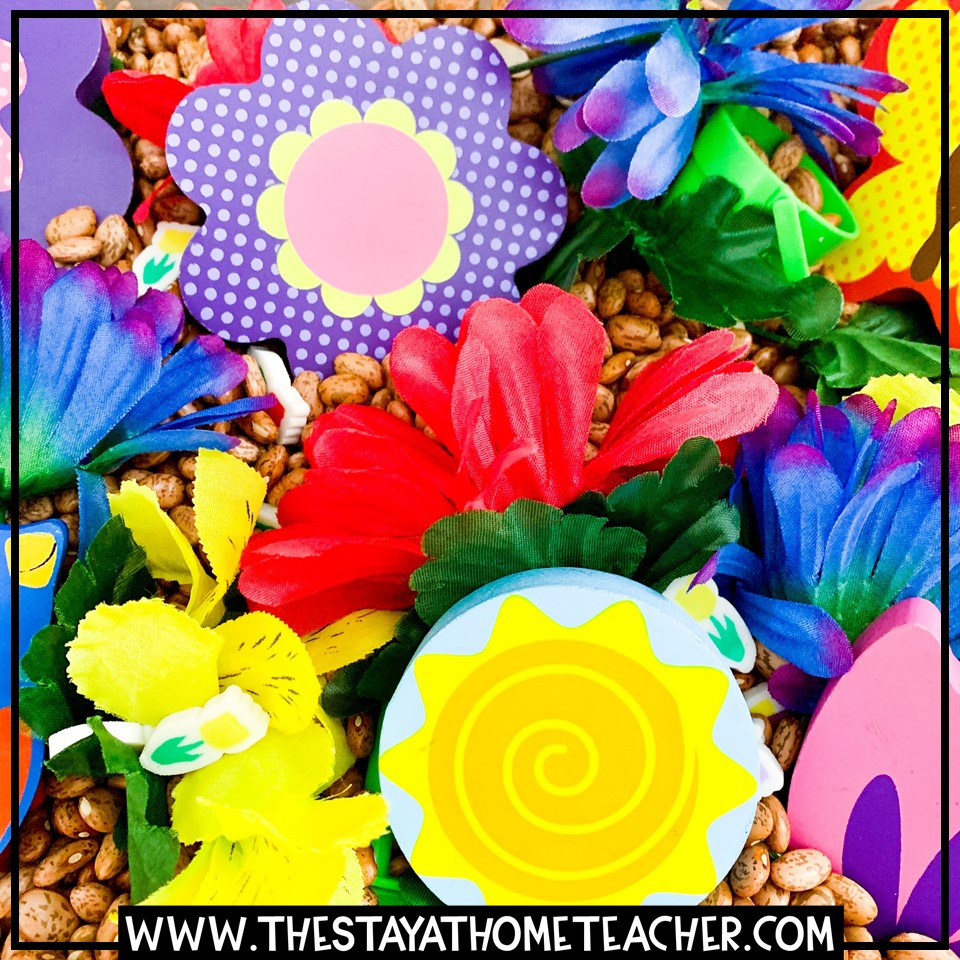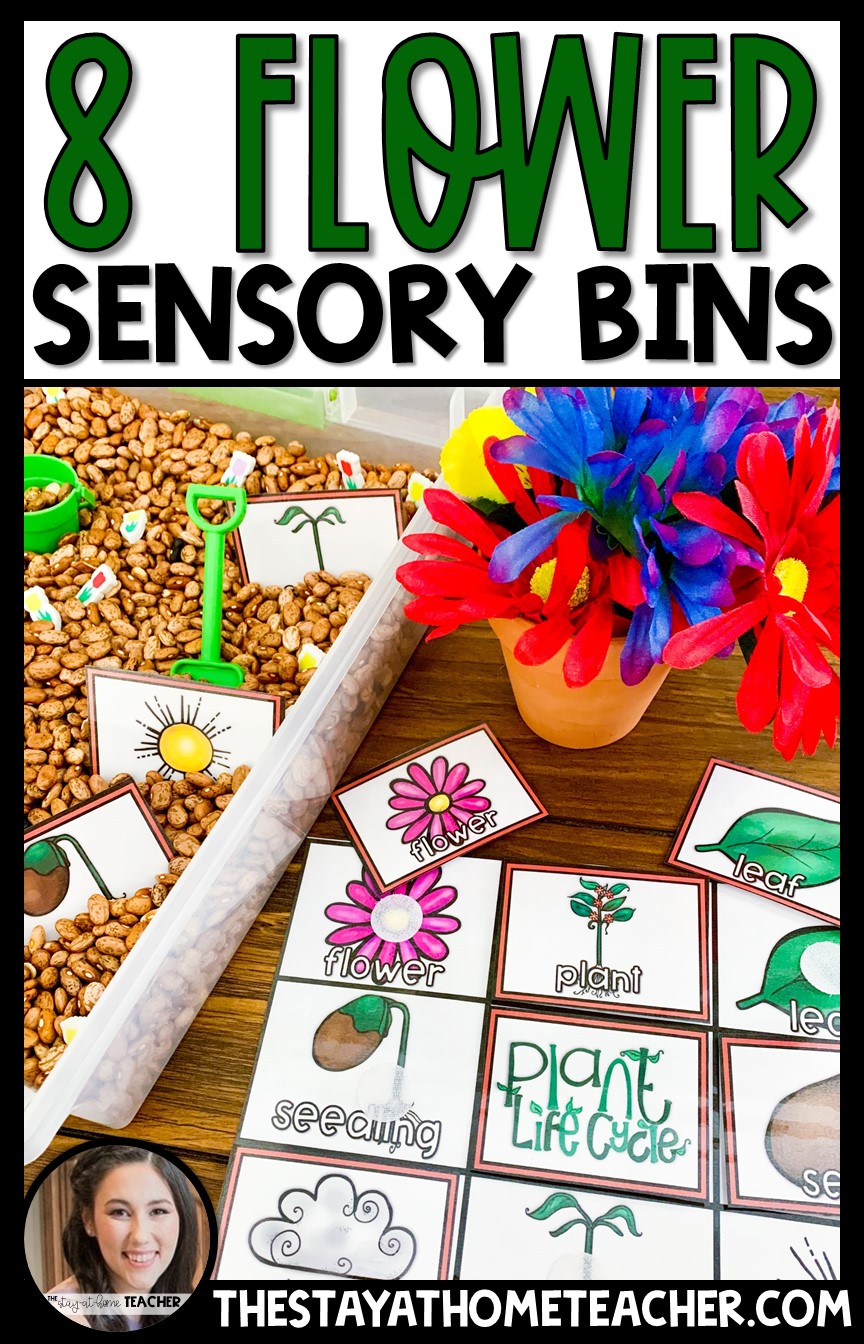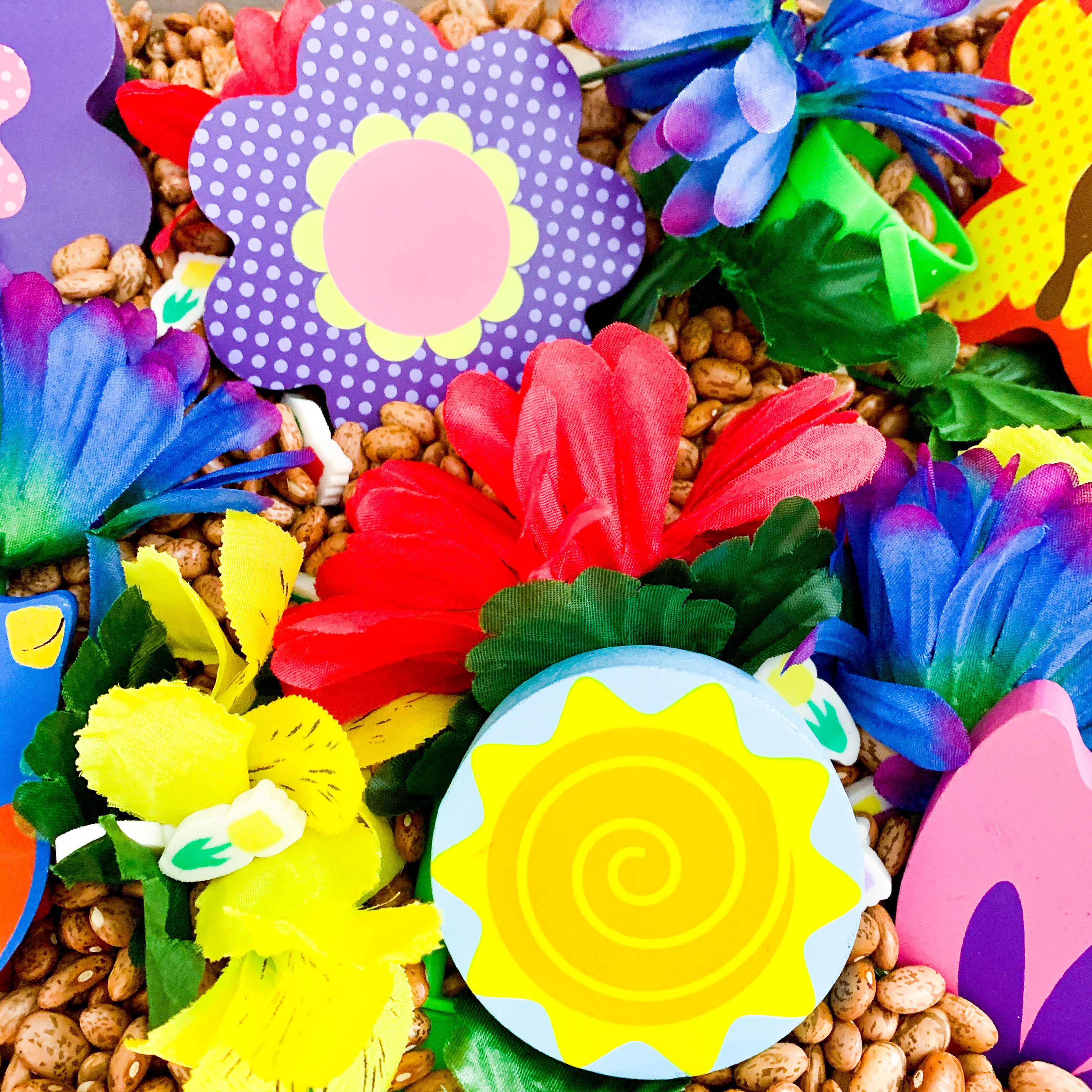Hey friends! We just put together our newest sensory bin for Spring and are SO excited to get to work with it! One of the biggest questions I always get about sensory bins is how to make them last a while since they take some time to set up. So today I’m sharing 8 (YEP, 8!) activities you can do with just one sensory bin! Y’all ready?!

Set Up Your Sensory Bin
This sensory bin is one of my favorites each year because it’s super simple and inexpensive to set up. However, there are so many activities packed into this one little bin!
To put together this sensory bin you’ll need just a few materials – a bin, dry brown beans, fake flowers and pots, flower mini erasers and any other flower-themed toys or manipulatives you may have on hand. The more manipulatives, the more chances to explore!
We had all of these supplies saved from previous years, but purchased them all for $1 each between Dollar Tree and Target! WHAT?! (The flower puzzle was a gift from years ago.) I love reusing materials from years past and including some of the toys that LG has outgrown or forgotten about.
Once your bin is put together (AKA – once you toss all the goodies into the bin) it’s time to get to work! I’ve included 8 of the activities we’ll be using our bin for below!

Flowers Puzzle Sensory Bin
This first activity is by far the easiest to set up. I tossed in one of LG’s chunky puzzles from toddlerhood (and may have shed a tear that she’s so stinking big now) and it was like she had a brand new toy! Of course it took her all of 2 seconds to put together the puzzle, but we also got some good vocabulary and color practice out of our conversation about the pieces.

Gardening Sensory Bin
This may seem like a “just for fun” sensory bin, but skills learned through dramatic play are just as important as academic skills for our little learners! In this garden bin, your kiddos will practice scooping, pouring, arranging, “planting”, and so much more! (PS The absolute BEST way to turn a “just for fun” bin into an “academic” bin is to sit with them and discuss the choices they make as they play!)

Mini Erasers Patterns Sensory Bin
We love putting our mini erasers to good use around here, and we love using them for simple activities even more! For this pattern activity, grab some crayons or markers in the colors of your erasers and whip up some patterns for your little ones to build!

Mini Erasers Color Sort Sensory Bin
I told y’all these manipulatives would get lots of use! Ha! For this activity, I used the other half of the patterns page and drew a couple of tulips in colors that matched the mini erasers. Boom! Color sorting activity!

Plant Life Cycle Sensory Bin
We love incorporating academic skills with our sensory bins, including our Science studies! This plant life cycle sensory bin is a fun way for little ones to be introduced to this Spring topic!
CLICK HERE to learn more about our Plants Life Cycle Study!

Mini Erasers Shapes Sensory Bin
Another fun way to use these mini erasers is to trace shapes! I flipped over the same paper that has our color sort and patterns activity, and drew a few shapes for LG to trace!

Flowers Math Activities
Put together fake flowers to good use! We used our flowers for tons of activities like sorting them by color, counting how many flowers there are of each color, comparing the amounts, building informal addition and subtraction problems, and more!

Preschool Binder Companion
Finally, I love to use our Preschool Binder with any sensory bin I make! This binder is an “evergreen resource”, so it has no seasonal theme. That makes it the perfect resource to use over and over again with tons of different themes!
CLICK HERE to learn more about our Preschool Binder!
Well, y’all. I hope you got some fun activities for your Spring sensory bins! Putting together all of these resources for our one bin was so much fun, I can’t wait to put together another one to share with y’all!
JOIN US!
Follow us on Instagram or TeachersPayTeachers for more tips, tricks, and resources for your Preschoolers!
CLICK HERE to follow on Instagram
CLICK HERE to follow on TeachersPayTeachers



3 thoughts on “Flower Sensory Bin Activities for Little Learners”